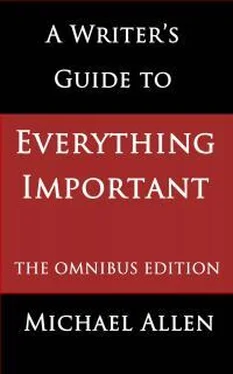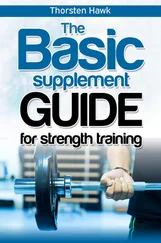‘Writing is an activity which can seriously damage your health. It can consume huge amounts of time and energy, and it can lead to frustration, rage, and bitterness.’ The overall purpose of The Truth about Writing was, I said, ‘to protect and preserve the sanity of anyone who is unfortunate enough to be afflicted with the ambition to write.’
What was true of my earlier book is true of this one – the one that you’re reading right now.
Above all, folks, try to have fun when you’re writing. If it isn’t fun, write something else. Or do something else, such as taking long walks in the country.
And while we all like a little success from time to time, success can be modest and yet rewarding. Read my essay On the Survival of Rats in the Slush Pile , and learn how to work to professional standards while remaining an amateur. You will be an amateur only in the sense that you please yourself what you write, you control your own work in every detail, and you don’t have to deal with traditional publishers. Or try to decode their disgusting contracts.
You can be the mistress of your own fate now, and you couldn’t once. Not until very recently, in fact. So make the most of your new-found freedom.
Hugh Howey, a digital self-publishing winner, estimates that when the Kindle was first sold there might have been (generous estimate) about 1,000 people in the US making a good living out of their fiction. Self-publishing, he thinks, has tripled or quadrupled that figure.
You might even be one of them, one day.
Good luck along the way.
APPENDIX
This appendix consists of a list of blogs about books. There are hundreds of such blogs, but if you start with the ones listed here, and read them on a regular basis, you will soon acquire a thorough knowledge of publishing in all its various forms.
It’s not easy to explain to you how lucky you are to be working as a writer in an era when this sort of information is readily available. It certainly wasn’t when I started out. Dozens of experienced writers, agents, lawyers, and – yes – even publishers, are making their knowledge and judgements available to you entirely free of charge.
That having been said, some of the bloggers are not too proud to ask you to leave a cash tip if you find a post of theirs particularly helpful. I have done so more than once, even after fifty years in the business, and so should you.
If you are flush with cash, you might care to subscribe to the two main trade journals of the book-publishing world. In the UK, you need The Bookseller . Current subscription rates are £196 p.a. if you live in the UK, £264 if you live elsewhere. In the US, the equivalent is Publishers Weekly , which will set you back $249 for a one-year print + digital subscription, and $399 if you live outside the US. (Digital-only rates for PW are cheaper.)
But wait. Before you rush off to subscribe to either of these two magazines, bear in mind that there may be a library near you which already subscribes, and makes their copy available to the general public. So try that first; it’s a lot cheaper.
The blogs listed below are not in any particular order.
Books Inq. The thoughts of an old literary journalist and his friends.
The Passive Voice. David Vandagriff, media lawyer.
A Newbie’s Guide to Publishing. Joe Konrath, a big-time digital success, tells how he does it.
Blog of a Bookslut. Pretty much what it says on the label.
Caustic Cover Critic. Ditto.
David Gaughran. Modern author with forthright views.
Dean Wesley Smith. Author of over 100 novels. A man who works unhealthily hard and tells it like it is.
Kristine Kathryn Rusch. Dean’s wife, and amazingly knowledgeable about contracts and other trade secrets.
Digital Book World. Some very well informed commentators.
Mediabistro.com: EbookNewser.
Mediabistro.com: Galleycat. The bit that deals with traditional publishing.
The Digital Reader. The one really essential guide to the new digital universe.
Writer Beware: The Blog.
The Literary Saloon. Deals mainly with literary books, and those translated into English.
The Shatzkin files. Mike Shatzkin, experienced publishing consultant. His Dad was also a major figure in traditional publishing.
Grumpy Old Bookman. Finally, this one is my own. Between 2004 and 2007 I wrote about 1.25 million words on this blog: reviews, news, comment, advice. There’s a lot of good stuff there if you search for it. Since 2007, I have been only an occasional blogger, mainly to let you know of the publication of a new book.
AFTERWORD
The author of this book, Michael Allen, has written several other books (with more planned) that are designed to provide straightforward and practical advice for writers at all stages of their careers.
If you are keen to learn more about the technique of writing fiction, try the following:
How to Write a Short Story that Works
How to Write a Novel that Works
In addition, much useful background on the worlds of book publishing, theatre, and screenwriting can be found in Michael Allen’s The Truth about Writing.
See Michael’s thoughtful essay on the pro-am approach to writing: On the Survival of Rats in the Slush Pile.
There are also four other books, so far, in the Writer’s Guide series:
A Writer’s Guide to Emotion
A Writer’s Guide to Viewpoint
A Writer’s Guide to Style
A Writer’s Guide to Success
More will follow soon.
To get a good overview of the kinds of fiction and non-fiction books that Michael Allen has written, please visit his author page on either the American branch or the co.uk branch of Amazon.
Finally, please consider writing a brief review of this book on your local branch of Amazon.
A WRITER’S GUIDE TO
LITERARY AGENTS
They used to be essential. But now they’re struggling for survival. Do today’s writers really need them?
Michael Allen
Copyright 2014 by Michael Allen
***
PART 1: An introduction to the subject
1.1 What is a literary agent?
A literary agent is someone who represents a writer in negotiating with publishers, film producers, and indeed anyone who wants to make any sort of deal with that writer.
The theory is that the agent, who spends all his life negotiating deals and knows the business inside out, will get a much better result than would the poor ignorant writer if she tried to negotiate on her own behalf. Hence the writer will, in the long run, earn a lot more money through an agent.
True, the writer has to pay the agent commission, and nowadays this is likely to be 15% or 20% of the money paid. But even so, with a good agent, the writer will still be better off.
Here’s an example.
About 35 years ago (time flies when you’re having fun), I wrote some TV scripts for an American film and TV producer named Sheldon Reynolds. And Sheldon told me a story about a (then) famous agent called Swifty Lazar.
Sheldon’s wife read a novel by Irwin Shaw, and she nagged her husband repeatedly about buying the film rights. So Sheldon rang up Irwin and asked who his agent was.
‘Swifty,’ said Irwin.
‘Oh shit,’ said Sheldon, because Swifty was a notoriously difficult and demanding man to deal with.
However, Sheldon then rang Swifty, at his Hollywood office, and declared that he was interested, in principle, in buying the film rights to Irwin’s novel.
Whereupon Swifty instantly named a price which was somewhere up in the stratosphere.
Читать дальше












